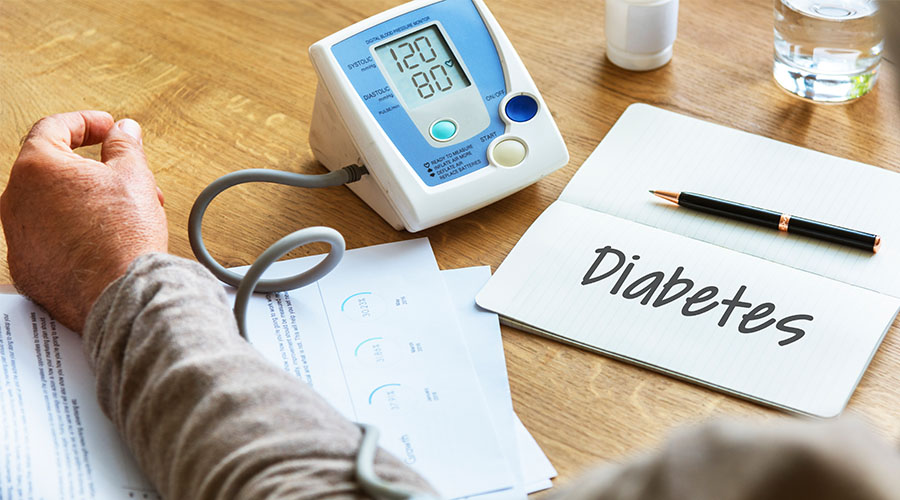
“Stay away from desserts,” “go for a sugar-free diet,” “you should never eat after 8 p.m.” — it seems like everyone has a piece of advice for you when you have diabetes, isn’t it? Friends, family, and even strangers think they know it all about this chronic disease. They are quick to judge you and give you advice which is sometimes simply archaic scraps of information or not true at all. So, with tons of advice pouring in from all directions, it’s often challenging to discern fact from fiction. Hence, below, we dispel 5 common myths surrounding diabetes to help you break through the noise and get straight to the facts.
Myth#1: Having Sugar Causes Diabetes
A diabetic eating dessert may raise eyebrows amongst some people. But, having diabetes doesn’t mean the end of sweet treats. Yes, you read that right. For diabetes, sugar becomes an easy target. But, the truth is the sugar itself isn’t the culprit. Weight gain and inactivity add to the risk of diabetes. And when we eat more calories than our body needs, we gain weight. While a portion of those extra calories might come from sugar, it’s not directly to blame.
So, to reduce your risk, try to match up your calorie intake according to your body’s needs rather than just cutting sugar out altogether. Remember, if you have diabetes, an occasional slice of your favorite cake or pumpkin pie isn’t completely off-limits so long as it’s small in portion and a part of a larger healthy eating plan.
Myth#2: Diabetes Only Affects Obese People
Yes, being overweight or obese puts you at an increased risk of diabetes. But, there are some other factors too such as a family history of diabetes, high blood pressure, or being sedentary that can serve as a trigger to diabetes onset. So, if you think just because you are lean, you can’t get diabetes, you are mistaken. In fact, according to the Centers for Disease Control and Prevention (CDC) National Diabetes Statistic Report 2020, 11% of people with type 2 diabetes in the U.S. are of normal weight.
Myth#3: Artificial Sweeteners Are Typically Diabetes-Friendly
Not at all! Ever came across those eye-catching sections of sugar-free processed foods in a grocery store? Well, there are tons of cookies, cakes, and candies out there that claim to be perfectly healthy for someone with diabetes. But, just because these are labeled as “sugar-free” it doesn’t always mean it contains zero added sugar. If you check the nutrition label on the back, you’ll often find that the product still has carbohydrates—which is sugar. In fact, some of these food items may also be high in saturated fat and calories. So, a sugar-free chocolate bar might not be any better than the regular chocolate on the shelf next to it, though the so-called sugar-free version probably costs more. So, don’t fall trap to such marketing gimmicks and use small amounts of the standard products occasionally instead.
Myth#4: Some Herbs Can Cure Diabetes
No, cinnamon, bitter melon, turmeric, hibiscus leaves, or no such herbs can cure diabetes. In fact, there is absolutely no magic spice or herb that can miraculously eliminate diabetes from your life. Though some herbs and foods might be able to enhance a person’s insulin sensitivity or insulin resistance in type-2 diabetes, they can’t ward off the disease completely. But, don’t be despair. With the right medication, a healthy meal plan, and regular exercise, it’s easier to manage diabetes. So, as long as you are not pumping in excess glucose into your system, you’ll be doing just fine!
Myth#5: Diabetes Always Causes Blindness and Amputation
Thankfully, this is not true. While diabetes may lead to blindness and amputations in some cases, it is not inevitable. And when you manage your condition carefully, these outcomes are rare. So, take a breather and keep your weight, blood pressure, and glucose levels in check to prevent such complications down the road.
The Takeaway
Living with diabetes is no doubt challenging. Hence, it’s easy to fall for every diabetes remedy under the sun to escape from the vicious grips of this chronic illness. However, you need to understand that not everything you hear has to be true and some might even end up hurting you. So, take every piece of advice with a grain of salt to get the scoop on what’s helpful and what’s harmful. And, always seek guidance from health experts to ensure that you’re making the best choices for your health.
